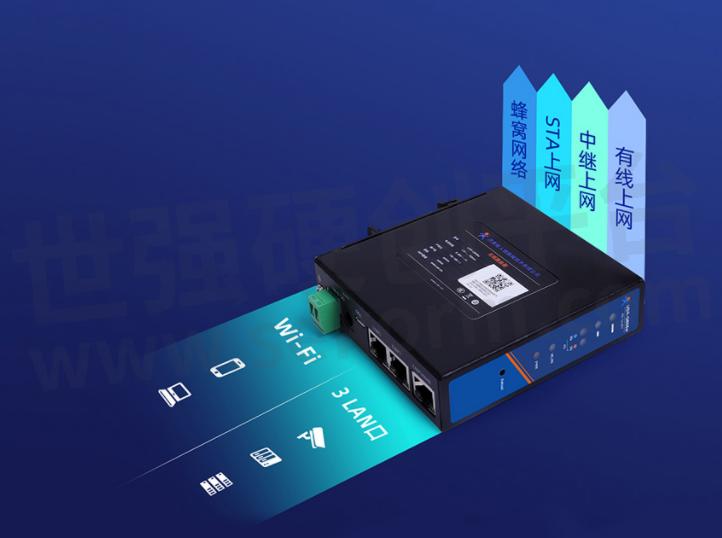What are the characteristics of the 4G industrial router?

The 4G Industrial Router is a high-speed industrial Internet of Things router, compatible with 4G/3G/2G networks, and able to use the public LTE network to form a high-speed and stable wireless transmission network.
4G industrial router adopts industrial 4G module and industrial wireless module and uses the OpenWrt operating system as a software support platform, including serial port, LAN, WAN, and WiFi.
Embed the wireless 4G module in the industrial router, plug in the 4G card, use the operator's 4G Internet access, data transmission, and so on, users can also connect to the WiFi of the 4G industrial router to access the Internet.
In terms of network supply, in addition to 4G network supply, you can also use broadband access to 4G routers, or WiFi as an STA mode to connect other hotspots with networks to supply the network.
4G industrial router is widely used in many industries because of its stable network, fast data transmission speed, strong data processing ability, and other prominent characteristics, and is highly respected and favored by people.

What are the characteristics of the 4G industrial router? What are the differences between the 4G industrial router and the 4G ordinary home router?
1. Stable network communication in harsh environment
The complex industrial environment has higher requirements for industrial routers.
The wireless module used in the 4G industrial wireless router is a high-performance industrial module, which supports software watchdog and hardware watchdog, and ensures the stable state of long-term operation in unattended scenes.
Reliable network security communication to ensure stable operation in high-temperature and cold working environments.
2. Strong compatibility and fast transmission speed
The strong compatibility of industrial routers enables them to support more devices of different standards, and their transmission speed is higher than that of ordinary routers. Some 4G industrial routers have only two network ports and one 485 port. It can be connected to PLC monitoring, field camera monitoring, real-time video data transmission, etc.
3. Wide coverage and affordable price
The industrial router mainly uses a high-quality main frequency CPU, therefore the coverage is very broad. Because it uses a high-quality main frequency chip, the 4G industrial router supports the 4G/3G/2G of China Mobile, China Unicom, and China Telecom, eliminating the tedious task of changing cards frequently.
To meet the needs of customers for powerful data processing capabilities and ultra-wide coverage, and because the cost of producing 4G industrial routers is relatively low, it can also provide users with high-quality and low-cost products.
The reason why 4G industrial routers can be favored by consumers is not only that they have stronger compatibility, higher transmission rate, and long-term stable operation, but also that they have the unique advantages of ultra-wide coverage, affordable price, and strong weather resistance, which can meet the needs of users for wireless transmission of large data. Field monitoring saves labor costs, buses share hot spots and can surf the Internet anytime and anywhere.
- +1 Like
- Add to Favorites
Recommend
- Differences between 4G DTU and 4G industrial router
- RSSI of 4g Industrial Router
- What Should Pay Attention to When Choosing a 4G Industrial Router
- RSSI Signal Strength for 4g Industrial Router: Exploring The Optimal Threshold in Depth
- Do 4g Industrial Router Emit Radiation?
- 4G Industrial Router Network Monitoring: Building an Efficient and Stable IoT Monitoring Solution
- The Difference Between M2M Modem and 4G Industrial Router
- Starting from The Needs, Tailor The 4G Industrial Router Purchase Plan for The Enterprise
This document is provided by Sekorm Platform for VIP exclusive service. The copyright is owned by Sekorm. Without authorization, any medias, websites or individual are not allowed to reprint. When authorizing the reprint, the link of www.sekorm.com must be indicated.





























































































































































































































































































































































































































































































































































































































































































































































































































































































